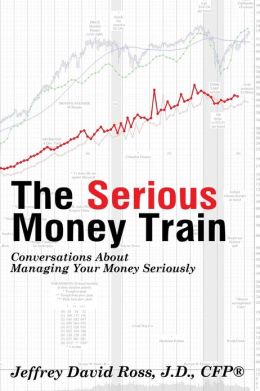
Clearly election season is upon us. How do we know that? Well, of course the Democrats are debating and campaigning in order to secure a presidential nominee. Also, President Trump’s rallies are occurring more frequently in swing states. These are the obvious cues.
But there are also cues that are less obvious—I think of these as election-year narratives. These are stories that the media hype to influence our thinking about the upcoming election. Some narratives may have a basis in fact, but the big ones that I’ve heard and read recently are not factually- based. Actually, the narratives I’m going to discuss below all share the common theme of downplaying the wellness of our economy and the equity markets. Here is my thinking about these narratives:
The Inverted Yield Curve
About three weeks ago, the interest rate you could earn by buying a 2-yr Treasury Bond was greater than the rate you earn by buying a 10-yr Treasury Bond. This is an unusual occurrence because bonds that have a longer maturity typically pay a bigger interest rate than shorter maturity bonds.
- The Narrative: Inverted yield curves signal a recession is coming soon.
- My Thinking: It is true that recent recessions have been preceded by inverted yield curves, but not all inverted yield curves are succeeded by recessions. But the experts I follow suggest that the real reason long-term rates dipped below short-term rates is simply due to supply and demand. We know that many foreigners have been buying our Treasury bonds because the bonds of their own respective countries are “offering” negative interest rates. Thus, they bring their money to America to get a positive interest rate, and if they temporarily buy more long-term bonds than short-term bonds, then long-term rates will decline faster than short-term rates.
The Trade War with China
- The Narrative: A trade war with China is bad for our economy and causing market volatility.
- My Thinking: Market volatility began to heat up after the market peaked in January 2018. Perhaps, our current negotiations with China have caused market volatility to heat up even more, but for every big down day we have seen (almost instant) reversals to the upside. The net result in the market over the past few months has been about break-even. This leads me to conclude that the market is telling us that the trade war is not a long-term threat to our economy.
The Coming Recession
- The Narrative: Recession is coming soon.
- My Thinking: There has been no evidence presented to help us understand why a recession is coming. I suspect that “recession-mongering” is really wishful thinking on the part of the opposition party, hoping that fear of a recession or an actual recession would prove to be beneficial to their political aspirations in 2020. Current economic data suggest that (1) important employment numbers are trending upwards, (2) interest rates are low and trending lower, and (3) consumer sentiment is high. These trends are not consistent with a looming recession.
The Fear of New Highs
- The Narrative: The market is too high to remain optimistic about the market.
- My Thinking: Although this narrative plays into our fears about losing money it doesn’t hold up under these considerations: (1) there is not a theoretical upper limit to the market because the market reflects the ever-expanding capacity for human progress; (2) market price levels are meaningful primarily in relation to earnings levels, and the forward-looking price-to-earnings ratio is 17.2, which is not historically high, and (3) in the context of the last 20 years market returns are still well below long-term market averages.
- Note: I am not suggesting that we are immune from another market correct—in fact, as I’ve written and explained many times, corrections tend to occur on average about every 4 years. But the market making new highs, which it has hundreds of times over the past 40 years, is not, in itself, a reason to forego optimism going forward.
FORWARD LOOKING STATEMENT DISCLOSURE
As a Registered Investment Advisor, one of our responsibilities is to communicate with clients in an open and direct manner. Insofar as some of our opinions and comments are based on current advisor expectations, they are considered “forward-looking statements” which may or may not be accurate over the long term. While we believe we have a reasonable basis for our comments and we have confidence in our opinions, actual results may differ materially from those we anticipate. You can identify forward-looking statements by words such as “believe,” “expect,” “may,” “anticipate,” and other similar expressions when discussing prospects for particular events and/or the markets, generally. We cannot, however, assure future results and disclaim any obligation to update or alter any forward-looking statements, whether as a result of new information, future events, or otherwise. Further, information provided in this letter should not be construed as a recommendation to purchase or sell any particular security.
The Planner’s Edge®: TM & copyright 2019. All rights reserved. No part of this publication may be reproduced in any form, or by any means whatsoever without written permission from the publisher. Serious Money TalksTM is a trademark of The Planner’s Edge®. If you would like further information about the services of The Planner’s Edge®, please call 206-232-4500 or 1-800-735-7302. Email: info@theplannersedge.com.

